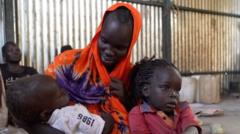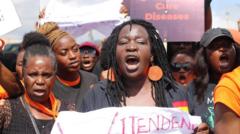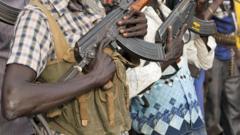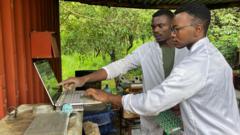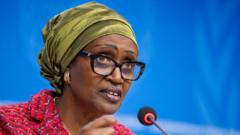In an alarming development, lifesaving health initiatives and research efforts around the globe are coming to a standstill due to the Trump administration's recent pause on foreign aid. This 90-day halt has directly impacted programs essential for combating diseases like tuberculosis, malaria, and HIV, wreaking havoc in various regions.
Trump Administration Cuts Foreign Aid, Threatening Global Health Efforts

Trump Administration Cuts Foreign Aid, Threatening Global Health Efforts
A suspension of foreign aid is halting critical health programs worldwide, leading to dire consequences for disease prevention and treatment.
In Uganda, the National Malaria Control Program, led by Dr. Jimmy Opigo, has been forced to suspend its critical insecticide spraying operations and halt shipments of essential bed nets meant for pregnant women and young children. Meanwhile, in Zambia, vital medical supplies, including medications for hemorrhaging pregnant women and rehydration salts for toddlers, are stranded due to a pause in the U.S. Agency for International Development (U.S.A.I.D.) funding, disrupting the logistics of their transport.
Researchers and program managers from South Asia to Latin America report the devastating effect of the aid suspension on clinical trials and healthcare initiatives. With thousands of participants left without necessary treatments or contact with overseeing researchers, the urgency of the situation is growing. Many professionals involved in these programs expressed their despair, fearing that speaking out could jeopardize potential future funding.
This troubling situation indicates that decades of global health progress are at imminent risk of reverse, as communities reliant on these critical programs are now confronting a healthcare crisis.
Researchers and program managers from South Asia to Latin America report the devastating effect of the aid suspension on clinical trials and healthcare initiatives. With thousands of participants left without necessary treatments or contact with overseeing researchers, the urgency of the situation is growing. Many professionals involved in these programs expressed their despair, fearing that speaking out could jeopardize potential future funding.
This troubling situation indicates that decades of global health progress are at imminent risk of reverse, as communities reliant on these critical programs are now confronting a healthcare crisis.

